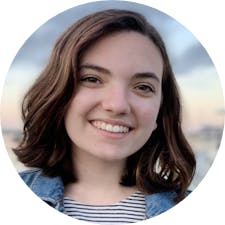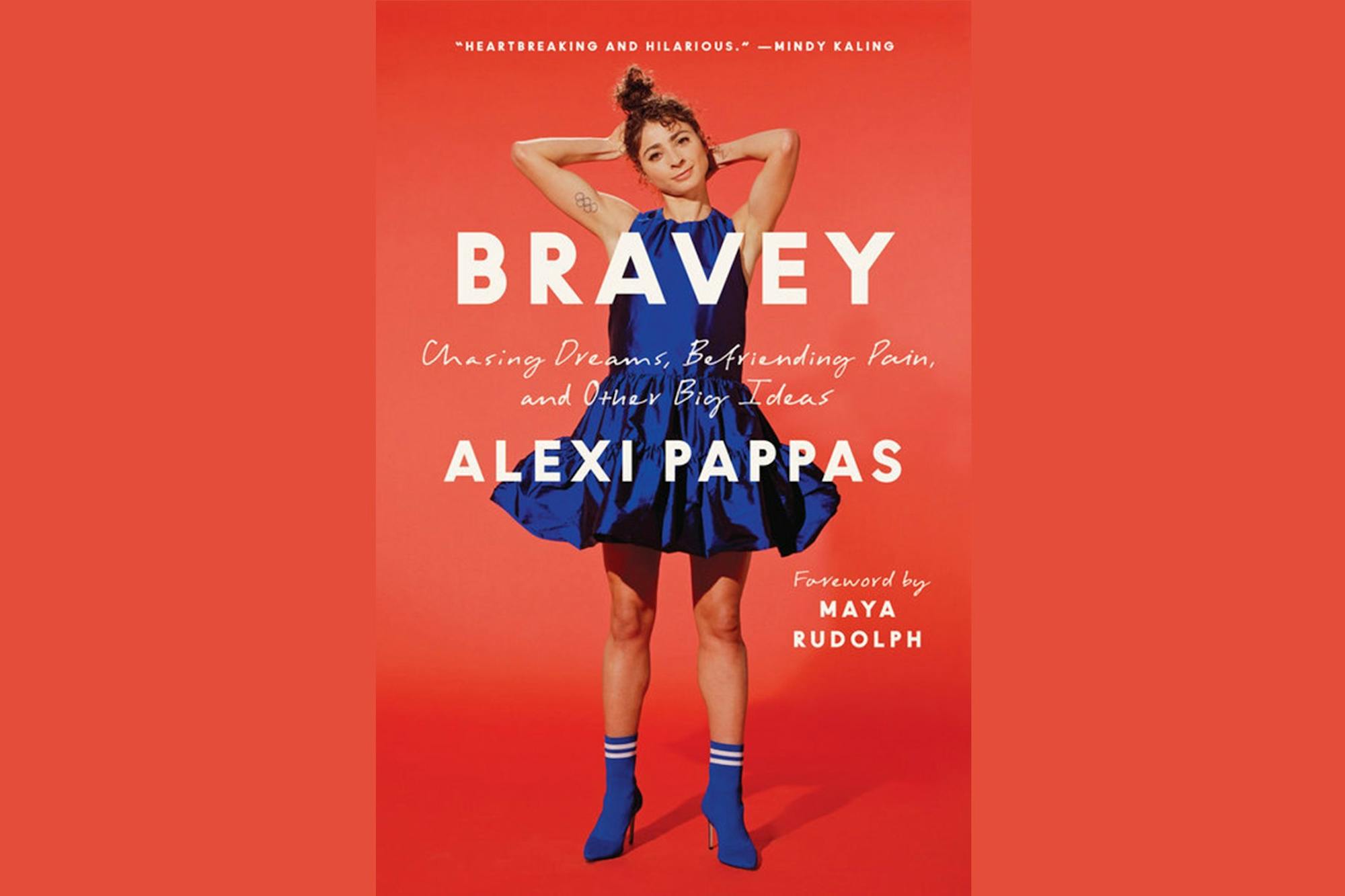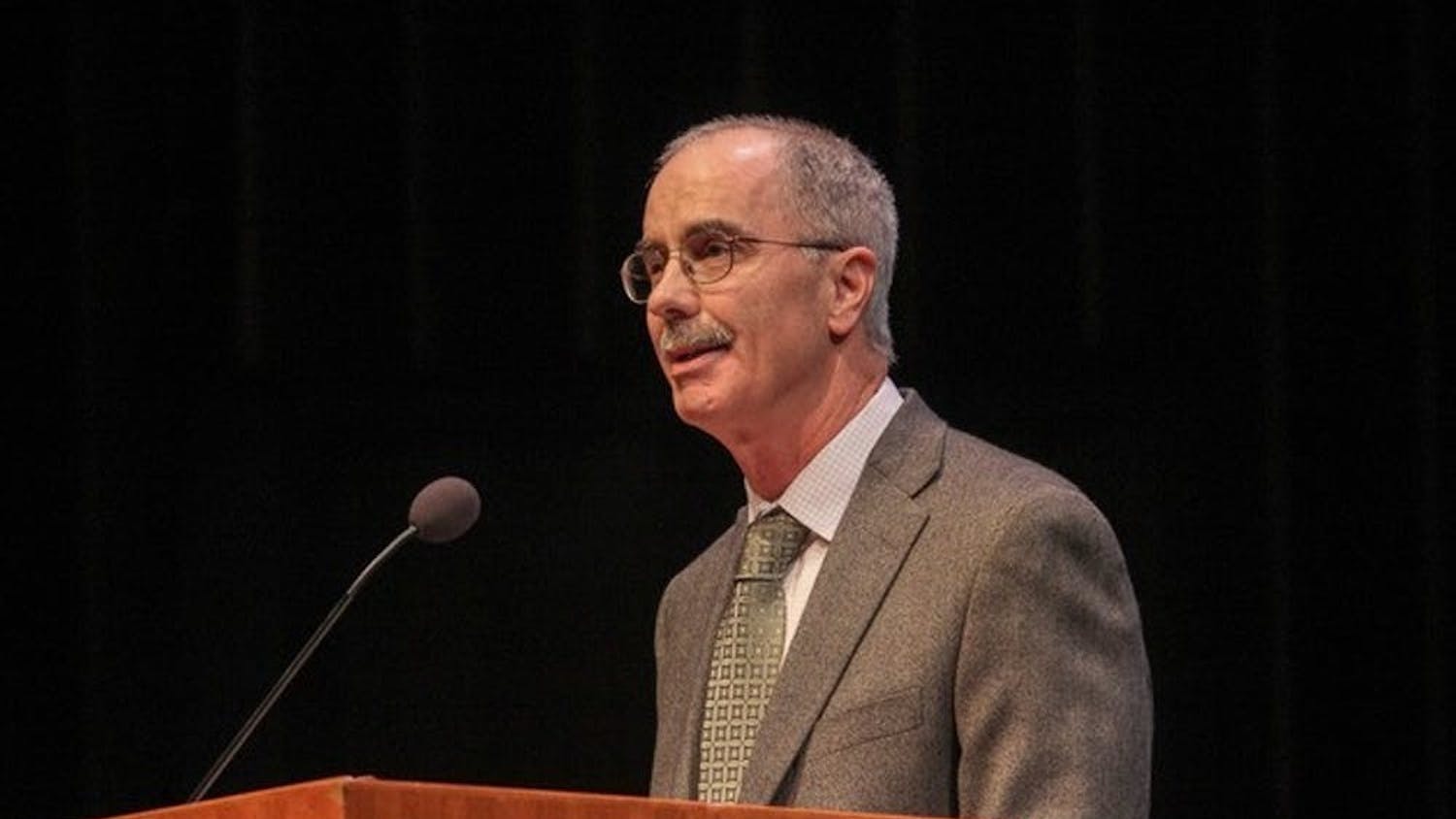Alexi Pappas ’12, who rose to fame as a member of Greece’s cross-country team in the 2016 Summer Olympics, is not just an athlete.
At Dartmouth, Pappas studied poetry in the creative writing department and did improv with the Dog Day Players. Since graduating, she has pursued her passion for storytelling as a producer on several films, including the 2019 romantic comedy “Olympic Dreams” — in which she starred alongside Nick Kroll.
Pappas’ new book, “Bravey: Chasing Dreams, Befriending Pain and Other Big Ideas,” which was published on Jan. 12, discusses her experiences with confidence, mental health and her aspirations through a memoir-in-essays. On Feb. 15 at 7 p.m., Still North Books and Bar and Women of Dartmouth will host a virtual conversation on the book between Pappas and actress Rachel Dratch ’88.
In an interview with The Dartmouth, Pappas discussed her experience as a Dartmouth student, author and athlete, and how she reflected on these experiences in her new book.
How did your time at Dartmouth lead you down a path where you were able to combine your passion for athletics with the arts?
AP: I think Dartmouth was a great place to do more than one thing because the campus was small enough and the opportunities were big enough that we can pursue many things. I remember many days when I would go straight from cross-country practice to Dog Days rehearsal to the library to write, and I think that is made especially possible in a place that has those opportunities and is small enough to manage getting from one place to the other. It felt like the energy at the campus made more things feel possible. I felt like it was OK and even celebrated to pursue the arts and sports.
What inspired you to write “Bravey,” and why did you decide to write a book rather than produce a movie, given your experience with filmmaking?
AP: Thinking back to my experience at Dartmouth, I started out as an improv performer and a writer; creative writing was my focus there, with an emphasis on poetry. I think that carries over very well to dialogue writing in movies and now writing a book — there are little poems in the book as well. I think that each medium has its strengths and is special for different reasons, and I think books and memoirs in particular have a really unique place in the world. It just felt like the right place and the right medium to tell the whole story.
I think what a book does really well is that it allows me to share more about what was going on in my mind specifically and how I was thinking. I think that’s one of the things I love most about reading memoirs: not just learning about what people did, but about how people think.
How did you decide on the narrative approach that you took to tell your story?
AP: The book has an emotional arc rather than a narrative arc. I think that allowed me to jump pretty seamlessly from athletic experiences to creative experiences to family and personal and college experiences because it was more about my emotional growth. That’s not unique to any one of those environments; it was happening all simultaneously and overlapping. I think that’s why I chose the essay format for the book rather than a narrative structure.
What were the most challenging and surprising parts about writing a book compared to other kinds of writing you have done in the past?
AP: I think finding the words to describe an experience is so different than having the experience. With a movie, there’s the ability to use visuals and to have your actors bring things to life and interpret them. With a book, it’s really a more direct connection between the experience and the reader. The challenging part was finding those words. That was also the best part about it, too, but it took time to make sure I found the words for those experiences that would communicate to the audience because a memoir is different from a diary.
Do you have any upcoming projects that you are excited about or ideas for projects that you hope to pursue at some point in the future?
AP: I am working on my first television show, which is really exciting, and there’s still a lot about it that’s a secret. That’s a new world for me a little bit, moving from film to television. I have a couple film projects, a feature film that I’m planning to shoot this spring and another project that I’m working on that has to do with the Olympics. I’m working with a great team that put together “The Last Dance,” which is the Michael Jordan documentary. Then I’m an athlete, and that’s just been interesting with COVID. Thankfully I’ve still been able to train, and we’re just seeing what races will be available given it all.
Do you have any advice for any aspiring athletes, writers or creative artists that you wish you had known while a student?
AP: Truly take the opportunities that you have when you have them and understand that even if you think things are evergreen, opportunities are rare and special for a reason. That plays perfectly into my choosing to go chase the Olympic dream when I did, which was really terrifying. I thought about going to grad school for poetry and got into all these schools, and it felt scary, but the right thing.
Then I think just, if you want to make something, just begin making it. School is so important to learn those tools, but there's nothing to be substituted for experience and trying. And that's what we did, you know, by making our first movie right after college, even though I hadn't gone to the same kind of film programs that some other filmmakers do.
As for Dartmouth, make the most of the resources and the people there. I developed relationships with my thesis advisers and I applied for grants to help make my dreams come true. Cynthia Huntington was my adviser, and she truly changed my life. There are a lot of really generous professors at Dartmouth that will take the time. There's a lot there that's special. When you are at Dartmouth, as much you can, be there and make the most of that, instead of thinking too much about the moment after you graduate.
This interview has been edited and condensed for clarity and length.





